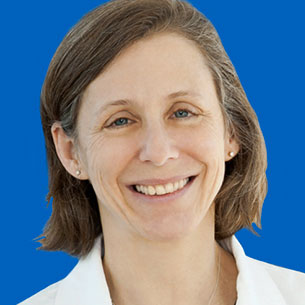For the past several years, ASCO has conducted a large-scale survey on Americans’ knowledge of and perceptions about aspects of cancer and care. The results of the 2019 National Cancer Opinion Survey are shared in this issue’s cover story, and reading through the findings is illuminating and alarming.
The survey uncovered common misperceptions and false beliefs about cancer, many of which I hear and work to correct in my own clinic, in my roles as a gynecologic oncologist and palliative care provider. According to the survey, for example, 25% of Americans believe there is nothing they can do to prevent cancer, and 16% believe cell phones cause cancer.
Here are some of the cancer myths I hear a lot from my patients:
- Eating sugar feeds the tumor
- Opening the abdomen (as in surgery) will expose the tumor to air and make it spread
- CT scans have too much radiation and will make a cancer worse or cause a new cancer
- Routine care should always have found a cancer earlier
- Hospice and palliative care are the same thing
- When you go on hospice, you are just being sent to die and everyone is giving up on you
- At the end of life, people need to be fed and receive hydration (I recognize this issue is more complicated, but the perception is still not true)
- Clinical trials are doctors using patients as guinea pigs
Many of these misperceptions are obviously wrong and actively harmful. Some are simply incorrect, but I believe they do cause significant harm in the long run. I don’t want my patients obsessing over sugar and cell phones. I want them to be empowered with good information to take excellent care of their own health in a way that is sensible and sustainable throughout their entire lives: to eat well, to be physically active, to manage their weight, to stop using tobacco, to limit alcohol and sun exposure and other known cancer risk factors. Cancer is a wake-up call for taking care of yourself and working improve overall health (such as weight loss, a prime example), and those of us who provide cancer care need to make sure our patients have accurate, actionable information about prevention and healthy lifestyle choices.
The 2019 survey also examined Americans’ perceptions about end-of-life care, an issue I care about deeply. It found that 91% believe it is important for doctors and patients to take the time to discuss end-of-life care, but only 26% of people who have/had cancer say they have ever discussed end-of-life care with a doctor. Among those who have thought about end-of-life care (53% of those surveyed), 25% say they have never communicated their wishes to anyone, including family members.
I found this interesting. I always talk to my patients about life planning (advance directives, wills, power of attorney, etc.)—not as part of an end-of-life discussion, but as part of any care discussion. I frequently get the impression that they don’t like to talk about it. I believe that people think they want to talk about end of life, but when I bring it up, they often shut me down. They get uncomfortable. They talk about not being ready to give up.
There’s a disconnect here between beliefs and actions where education can have a powerful impact. We must continue to normalize advance planning and create opportunities for end-of-life conversations even when that feels uncomfortable. Just as I want my patients to live well, I also want them to die well—in comfort, with dignity, and in accordance with their wishes.


Recent posts